If you happen to catch any of my #farmfoodtour pics on Instagram a few weeks ago, then you are aware of the great time I had when I was invited by the Kansas Farm Bureau to spend three days traveling across Kansas visiting local farms. All of these farms are impacting our nation as they supply their goods all across the country and beyond. I also learned many lessons about how are food is raised and truly had an eye opening experience.
I love writing about local food and love meeting the farmers behind the food so I was excited to have the opportunity to experience this.
The trip consisted of a handful of writers and bloggers from the Midwest along with our hosts which was a representatives from Kansas Farm Bureau and The Kansas Soybean Association.
There was a lot of talk on the tour about the GMO controversy and although, I get the need for GMO for world hunger, the need for pesticide and virus resistant crops, etc…, I am anti GMO in the foods I eat, against factory farming and am adamant that our food should be labeled if it contains GMO.
So before the tour I have to admit I am the one who only listened to one side of the story and spent too much on organic produce.
There is still much debate on this subject but after this tour I am a bit more relaxed about things. I learned there are only eight GMO crops; corn, soybeans, cotton, papaya, canola, sugar beets, squash and alfalfa. I also learned there is rigorous testing done to ensure safety.
In addition to what I learned on the tour, I have been scouring sources to make the right decision for what I want to feed my family. Each side has a great argument and I am not an expert by any means so it really has to come down to a personal choice.
With a daughter recently diagnosed with some allergy and other health concerns, I am probably still going to stick with buying organic and non GMO foods but won’t freak out as bad if we get a GMO in our diet every now and then.
There is research that states GMO’s don’t cause allergies there is other research that says certain allergies did not exist until GMO’s where introduced. While we are on the topic of allergies there is now talk of making a GMO peanuts that would remove the allergen. There is also talk of a GMO wheat grain that would remove the gluten. For people who suffer from gluten issues or have peanut allergies does that make GMO a good thing?
My daughter is having some gluten issues so as a mom is that something I would try to help my daughter although I have been anti GMO, I don’t know. I would certainly have to do my homework. Again so much controversy that you have to choose what is right for you.
If gluten is an issue for you, do not miss reading about day two of the tour where we visited NuLife Market in Scott City, KS. They have amazing gluten free flour as well as other products.
The labeling issue was another hot topic. I think it is super important for people to know what is in their food but we also need to educate ourselves as well. If you are trying to avoid GMO’s, know what crops are modified so you don’t have to fear if that cucumber is a GMO or not, because it is not one of the eight.
Before the tour I was adamant that GMO foods need to be labeled. After the tour I learned how much labeling laws would increase food cost and no one wants that. I decided that if the labeling is not going to happen then I need to educate myself on what crops are modified, and buy organic when I am not sure. There is already organic and non GMO labeling available that can probably help make the decision I need, so I don’t know that I am such a stickler on that topic anymore.
Other hot topics included antibiotic use, organic produce and crops as well as grass fed beef.
What about grass fed beef? Well, all beef is grass fed because they graze in the pastures. How it is finished is the difference. This is not too much of a hot button for me as my father in law raised cattle and gave them grain and that is all we ate. He recently quit raising the cattle so now I buy organic beef, but do not necessarily focus on grass finished or not. Grass finished has more omega 3 than grain finished but not enough to make a difference in your diet, so if you are looking for more Omega 3 eat some salmon or take a supplement.
What about antibiotics? All of the farms we visited do not give their animals antibiotics just for the heck of it and Good Farm that raises pork does not use any at all. The farmers that do use them explained that they are only used if medically necessary. Just as we get sick and occasionally need one, so do the animals. I also learned that there is a stringent documentation process on what animal got, how much and when it was. There is also a waiting period before the animal can be processed after an antibiotic is administered to make sure it is out of its system.
What about organic? Before the tour I envisioned non organic produce being doused with chemicals and then picked and put on the grocery store shelves. After the tour I am a little less concerned. Farmers have guidelines they have to adhere too on many levels and pesticide use is one of them. There is a certain waiting period they have to follow before they can harvest the crop after a pesticide has been applied. Does this make the fruit any safer to eat? I don’t know but it makes me feel a little better knowing there has been time for rain-showers and other environmental elements to shake off some the residue.
I appreciate that Cal-Ann Basil Farm we visited on day one does not use any synthetic pesticides since that is the brand I buy. I was happy to learn about the waiting period process on harvesting after pesticide use but will still buy organic especially the produce listed on the dirty dozen list because that is what works for me. I will say that knowing what I do now will help me not be so concerned if I see my son eating a non organic apple or knowing my daughter is not getting organic produce in the dining hall while she is away at college.
The last issue we will tackle is Factory Farming. When I hear the term factory farm I envision hoards of pigs or cattle crammed into a tiny pin covered with gunk and who knows what else. The McCarty Family Farms we visited that produces milk for Dannon Yogurt is considered a factory farm and it was a total 360 from what I had in mind. You can read more about the McCarty Dairy on day three of the tour.
I cannot say enough about everything I learned and how compassionate these farmers are to make sure the crops they are growing and the animals they are raising meet the highest quality standards. It is truly is all about family and they care for their families as much as we do ours and are feeding them just like us so they want to produce the best food possible in the best way they know how.
I wish to thank the Kansas Farm Bureau and all the incredible farmers for this amazing experience. You can read more about the farms in the links below.
Day one: Cal-Ann Farms, Good Pork Farm, Sawyer Land and Cattle.
Day two: Nu Life Market
Day three: McCarty Family Farms, Blythe Angus Ranch

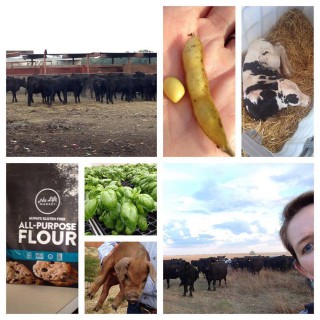
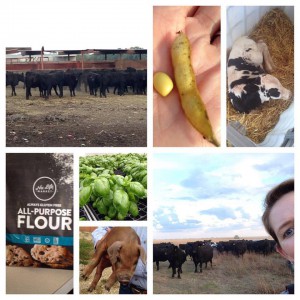
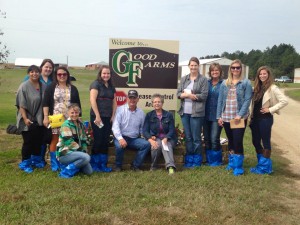
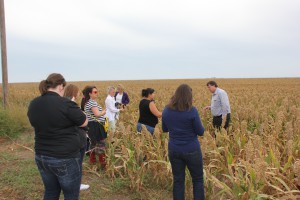
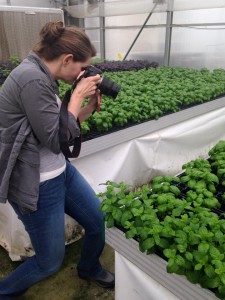
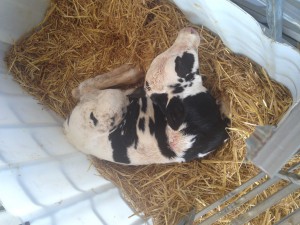
You are awesome for coming to the farms with an open-mind and willing to listen and learn. I admire your ability to consider all options. I also appreciate that we have choices in America and if you choose to purchase organic or GMO-free, you can! And if someone wants to buy it, someone will grow it!!
Kudos to you for your excellent series of posts detailing our trip. I finally have my blog posted tonight…so go check it out later! Stay in touch, my friend!